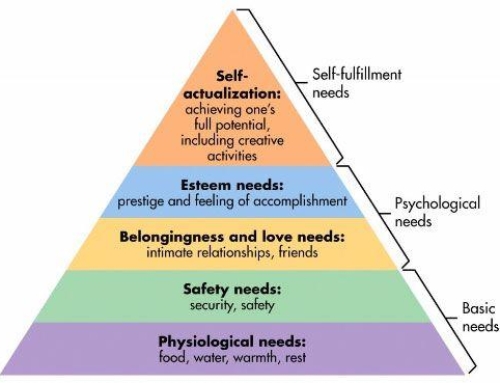Do you remember what things were like before iphones, Snapchat, or Instagram? It was a time of dial up email, flip phones and cameras with rolls of film in them.
Life was much different back then and what is amazing is how fast things have changed. It was June of 2007 when the first iphone came to market and changed the world. That was only a decade ago!
Now, take this speed of change and apply it to money today. It hasn’t been just technology that has changed. The rules of money have changed as well, making your parent’s way of handling things out dated and in need of some new ideas.
Your grandparents used cash to make purchases while your parents likely used credit cards and found themselves in mountains of debt. Today there is Apple pay and other digital forms of payments.
Your grandparents had company pensions and social security payments allowing them to get away with not having to save much for retirement. Your parents have seen the elimination of such benefits and are struggling to save enough for their retirement. For you, pension went the way of the dinosaur and social security is iffy at best.
Your grandparents had bank deposits earning 10%+ rates of return at the peak and could create more income from less money. Today with bank deposits earning pretty much zero, there is no income generated off your deposits.
We live in a radically different world today that requires a different way of thinking and more responsibility has been placed on you for your financial security. What worked for previous generations is likely not going to work for you and that is why I highlight these top 10 money hacks specifically for Millennial’s.
#1 GET DISCOUNT CARD
Using a discount card to make purchases can be a smart way of collecting a few cash and points through out the year on purchases you’re going to make anyway. There’re several new fintech companies offering discount facilities for young and entry level business people. You can use your points earned to secure an investment or an asset that will ultimately fetch you interest.
#2 KEEP CONTROL
By avoiding cash dumps and other similar plans that hold your money hostage until you’re nearly 60 years old, you keep control and have access to money when you need it. This requires careful planning but one of the biggest problems people have is not having access to money to invest or spend, which leads to debt. Save money for retirement and other big-ticket purchases in accounts that don’t tie the money up.
#3 KNOW THE FLOW
Keeping tabs on how money is flowing in and out of your life is essential to controlling spending and accumulating money for yourself. If you are simply checking your bank balance before spending to make sure money is there, you are likely not doing things right. Take time to write out all of your monthly and annual expenses. Include personal taxes (VAT), tuition payments, gifts and travel so you know what your average monthly expenses are. If you don’t have a spending plan for yourself then you will likely find yourself in debt or wasting money.
#4 KEEP IT MANAGABLE
One of the biggest challenges is debt. If you find yourself in this situation the best thing to do is often to consolidate and stretch the terms as far out as you can. Some people will suggest doing the opposite but if you do short term loans you are not giving yourself control over payment terms. You can have a 10-year loan and pay it off in 5 but you can’t have a 5-year loan and pay it off in 10. Also, your life doesn’t begin when your loan is paid off; your life has already begun. So, to avoid even more debt, be sure you are controlling your payback terms and save money along the way.
#5 AVOID BANKS
Banks are necessary for transacting business and transferring money from one place to another to pay for your lifestyle but banks should not be where you store money. They pay no rate of return, have government insurance that is trillions under insured and they rob you of wealth with loans. They may have nice looking buildings and manicured lawns but look to insurance and mortgage companies for a more beneficial means of storing money.
#6 FOCUS ON INCOME
It is no secret that employer loyalty has diminished with each generation. Now days it seems younger workers change jobs every few months in an effort to find more money, freedom, benefits and friendly coworkers. But this is not what I am talking about for this particular hack. When I say focus on income, I am suggesting focusing on creating assets that create income for you…without you having to work. This means starting a business, buying a business, acquire rental property or invest in income producing investments. By doing this you will hopefully reach a point sometime in the future where the income from your endeavors supports your lifestyle.
#7 BE SAFE RATHER THAN SORRY
It is normal when trying to get your financial life established to avoid buying insurance to save on the expense. However, this is a monumental mistake. Though you may assume you don’t need it (Your healthy, a great driver or only renting), one incident could lead you down a path of bankruptcy. It is not a good idea to skimp in this area. Insure your assets, insure your income, insure your health and insure your life.
#8 FIND AN ADVISOR
It is a good idea to find a professional who you can get to know and have a good relationship with to help you navigate your financial life. A financial advisor can help you (for a fee) with many of your money related questions and goals as well as help with a home purchase, getting your insurance in order and can even help with tax and legal questions through their resources. An advisor is a great resource to have.
#9 DON’T BE THAT GUY (OR GAL)
When it comes to information, many of us are accustom to doing a quick Internet search to find an answer but there are times when an Internet search isn’t enough and you have to find a professional to get information. Now, this is where I ask you not to be the person that wants something for nothing. Often times, these professionals have spent years in school or business to know what they know and you shouldn’t expect anything from them for free. If you find yourself needing to get help from a professional, be willing to pay for those services and appreciate the help.
#10 RESIST THE URGE
It is not uncommon for people to learn something then think they have things figured out. Resist this urge to assume you know everything because regardless of how much you know there is even more you don’t know. Be open to new ideas and information as it comes to you. It doesn’t mean that you have to continually find a different way of doing things but it is smart to build on your knowledge and develop your path along the way.
SOURCE: https://brianskrobonja.com





